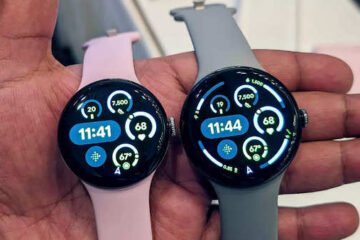Ah, RCS: it stands for “Rich Communication Services” and it’s meant to replace SMS as the default way most phones send text and multimedia messages. It’s more powerful than SMS — without that silly 160 character limit and with better support for images and video and group chat. But like SMS, it’s a carrier-based solution, which means that it has to prove that it can overcome historical problems that SMS has had, including crazy pricing models and weird interoperability problems from carrier to carrier.
Google has been working on getting carriers on board since at least February of this year to prove that very thing, and today it finally has something to announce: Sprint is switching over to RCS on its Android devices. Everything that ships next year will support it, and “select LG and Nexus phones” will get software updates.
Sprint uses Google’s solution for supporting RCS, called Jibe, but it should be able to send and receive messages with any phone because it comports with the “Universal Profile” for messaging put out by the GSMA. That profile should mean that any RCS-compatible phone should be able to send multimedia messages to any other RCS-compatible phone (and fall back to SMS if that fails). But “should” and “will” are two different things, and even though it’s 2016 we still don’t fully know how all this stuff will really shake out just yet.
AT&T supports RCS on a pretty big array of Samsung and LG phones — using their custom-built Messenger apps — but we don’t know if its solutions will work with Android’s default Messenger app yet. T-Mobile announced support for RCS back in July 2015.
On Sprint, RCS will work — blessedly — through the standard Android Messenger app. That’s one of three messaging apps that Google ships on phones (the other two are Allo and Hangouts), and that lack of messaging clarity is a sore point for Android users.
I’m well aware that outside the United States, different regions have different messaging apps that have reached a critical mass of users and become the go-to default. But that still doesn’t really absolve Google of the responsibility of having its own opinion on how messaging should work for Android. Right now the strategy is “try everything” with a side of “don’t piss off the carriers by supplanting a potential revenue stream with your own messaging solution” (that’s not an exact quote, of course).
That means that Google has three apps it installs by default on the Pixel, for example: Allo for consumers, Hangouts for enterprise, and Messenger for carriers. Only one of those target markets should matter — and let’s just say that Allo isn’t really competitive yet.
But hey, maybe I’m wrong and RCS will take over the planet next year and solve all our problems. We’re certainly overdue for a powerful replacement for SMS that works across all carriers and phones. Google says that it looks “forward to launching RCS with more partners in the coming months.”
[Source:-The Verge]



